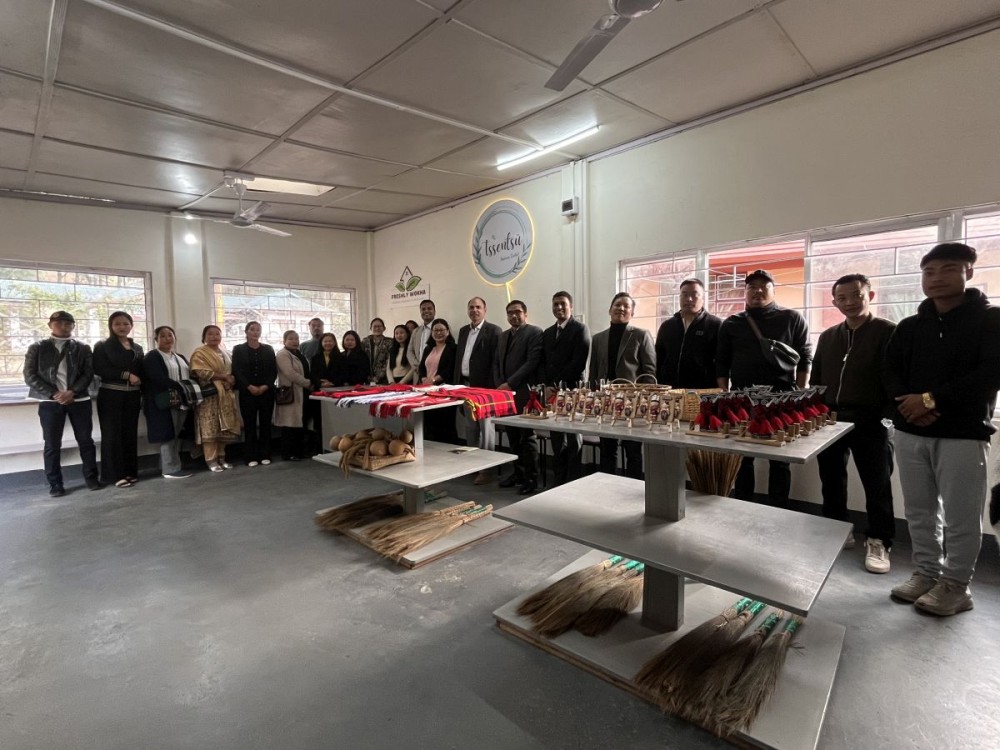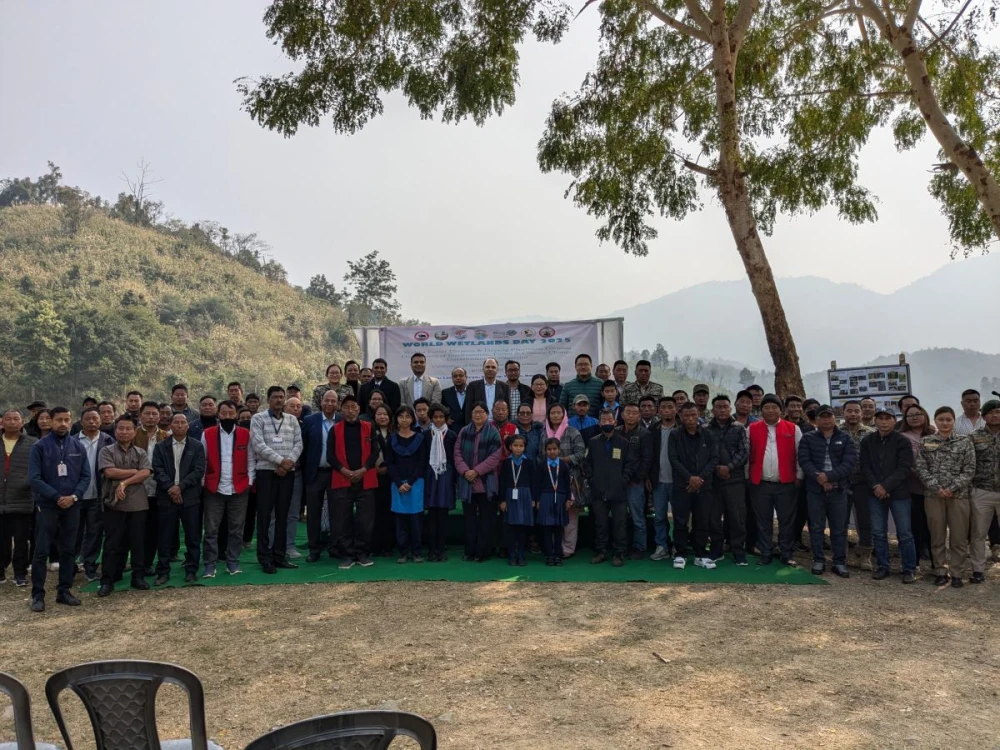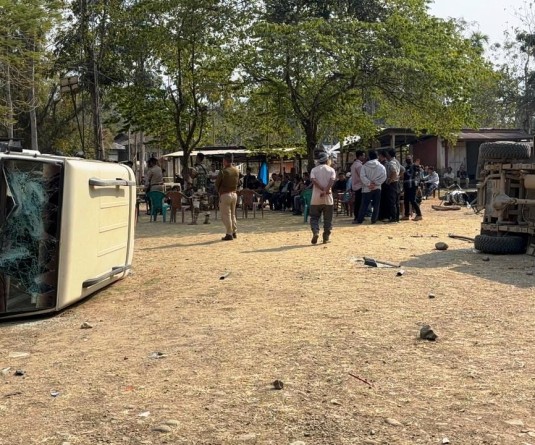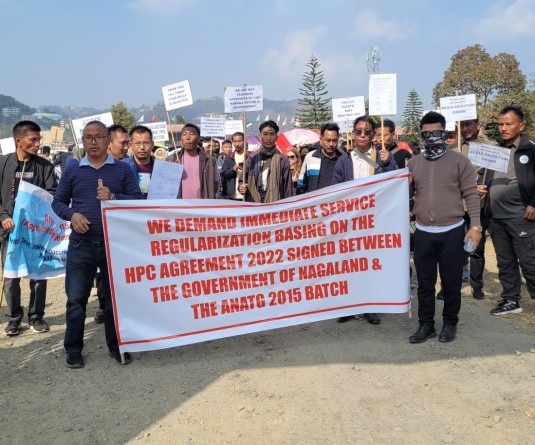Vedpal Singh, IFS, Principal Chief Conservator of Forests & Chief Wildlife Warden and Nodal Officer of the State Wetland Authority, Nagaland along with the Wokha Forest Division.

Morung Express News
Wokha | February 4
The World Wetlands Day was commemorated in Wokha with a series of events held at Lanchuchu Eryu, located near the NEPCO Tourist Viewpoint and the Doyang Reservoir on February 4. The celebration, organised by the Wokha Forest Division and Doyang Plantation Division, Department of Environment, Forest & Climate Change, Government of Nagaland, was held under the theme “Protecting Wetlands for Our Common Future.”
The event was graced by Vedpal Singh, IFS, Principal Chief Conservator of Forests (PCCF) & Chief Wildlife Warden (CWLW), and Nodal Officer of the State Wetland Authority, Nagaland, as the special guest.
Speaking on the occasion, Singh noted that while World Wetlands Day is traditionally observed on February 2, the celebrations were postponed to February 4 due to unavoidable circumstances.
He emphasised that wetlands are among the most vulnerable ecosystems, rapidly disappearing due to human activities. Singh highlighted the significance of the day, which aims to raise awareness about the need to preserve these vital ecosystems. He also issued a call to action, urging attendees to make a resolution not to purchase mineral water bottles or, if necessary, to dispose of them responsibly. He stressed the importance of proper waste management, particularly with regard to toxic waste such as inverter batteries, which contain hazardous materials.
In his address, Suman WM Sivachar, IFS, DFO Wokha & Doyang reiterated the importance of wetlands, describing them as one of the most valuable resources on Earth for sustaining livelihoods. He recalled the the historical significance of Wetlands Day, referencing the 1971 Ramsar Convention and its role in preserving wetlands globally. He spoke on the diverse types of wetlands, including coastal wetlands, rivers, paddy fields, aquaculture areas, and swamps, and stressed the invaluable role wetlands play in sustaining livelihoods. Sivachar further highlighted the positive impact of maintaining healthy habitats, citing the regular visits of Amur Falcons to the area as an example of how conservation efforts benefit both wildlife and the environment.
Addressing the environmental challenges faced by the region, Nuhuta Tunyi, SDO Civil Wokha, underscored the growing environmental crises, including extreme temperatures, flooding, and landslides, which are exacerbated by climate change. He also discussed the problem of plastic waste in the Doyang area, particularly in relation to non-biodegradable materials such as plastics. Tunyi called for a stronger enforcement of the plastic ban and urged the public to take personal responsibility by refraining from using plastic products and by planting more trees.
Rishi from the Wildlife Institute of India shared his insights regarding the ongoing efforts to address the issue of human-elephant conflict in the Wokha and Mokokchung districts of Nagaland. His visit was specifically aimed at studying the factors contributing to this conflict and identifying potential solutions. This initiative was based on a request from the Nagaland Forest Department, which had written a proposal to the Wildlife Institute of India to find mitigation strategies for the growing human-elephant conflict in these two districts.
Rishi highlighted that they had been in the region since August of the previous year, conducting extensive fieldwork. In Wokha district, they had already covered nearly all the villages, and were now in the process of gathering data in Mokokchung. The entire research project is expected to span two years, during which time they will visit each village to collect on-the-ground data. The goal is to understand the root causes of the human-elephant conflict and explore ways to mitigate these issues effectively.
He also acknowledged the valuable assistance provided by the local village heads, who played a crucial role in facilitating their data collection in Wokha.
Zuthunglo Patton, IFS, Chief Conservator of Forests (STC), Nagaland, encouraged all participants to take responsibility for preserving the environment. She commended the attendees for their active participation and urged them to share the lessons learned from the event within their communities.
The event also included the Wetland Mitra pledge, taken by the Eco Warriors, emphasising the importance of collective efforts in wetland conservation.
Elithung Odyuo, ACF, Bagthy and Merapani Range, Wokha, chaired the event, while D Rajiv Shankar, IFS, ACF, delivered the welcome address while the Deputy Commissioner of Wokha and the Head of the NEPCO Tourism Department shared their perspectives on wetland conservation and concluded with a vote of thanks delivered by Grace Kikon, RFO, Wokha Range.
In addition to the speeches, a drawing competition was held in the lead-up to the event, with prizes awarded to the winners in three categories.
Later, the Wokha Forest Division also inaugurated a common outlet called Tssentsü Nature Outlet for Self-Help Groups (SHGs) involved in the Nagaland Forest Management Project (NFMP) and Forest and Biodiversity Management Project (FBMP-KfW) and an SHG Processing Centre was also inaugurated at the Doyang Afforestation Range.






